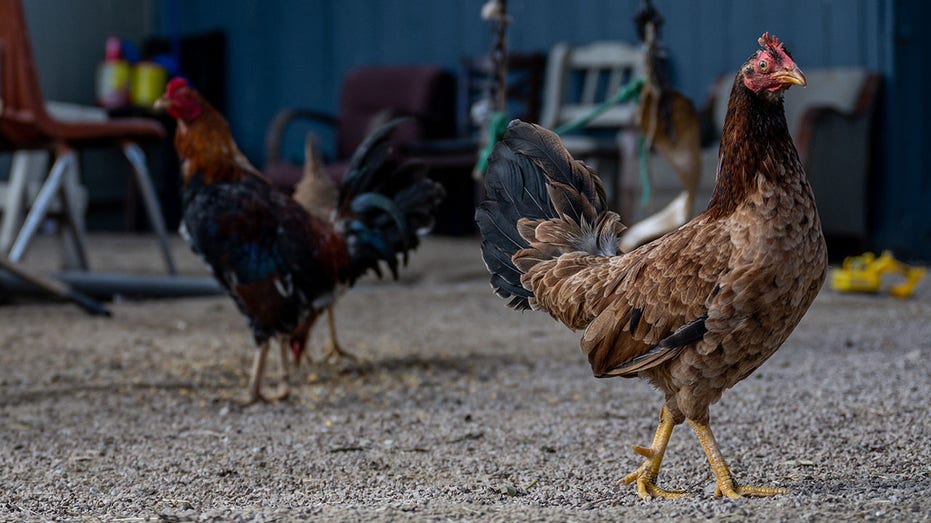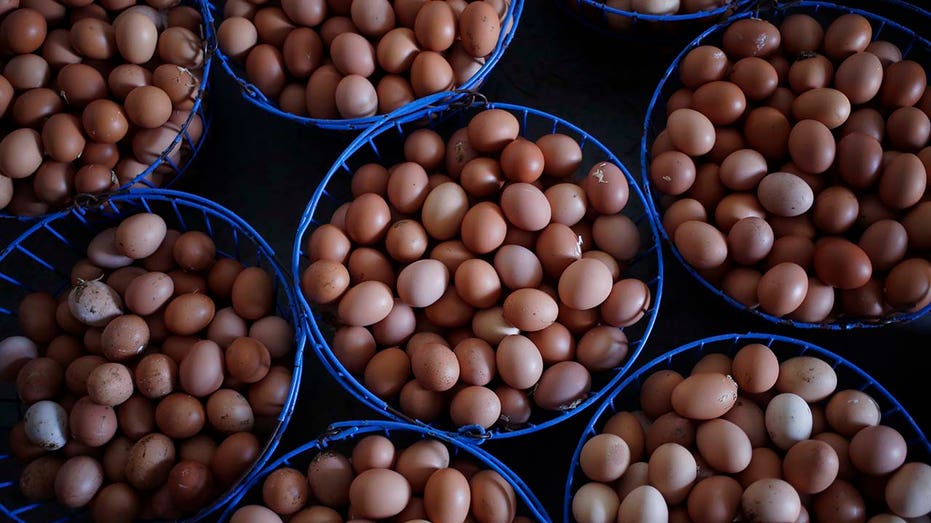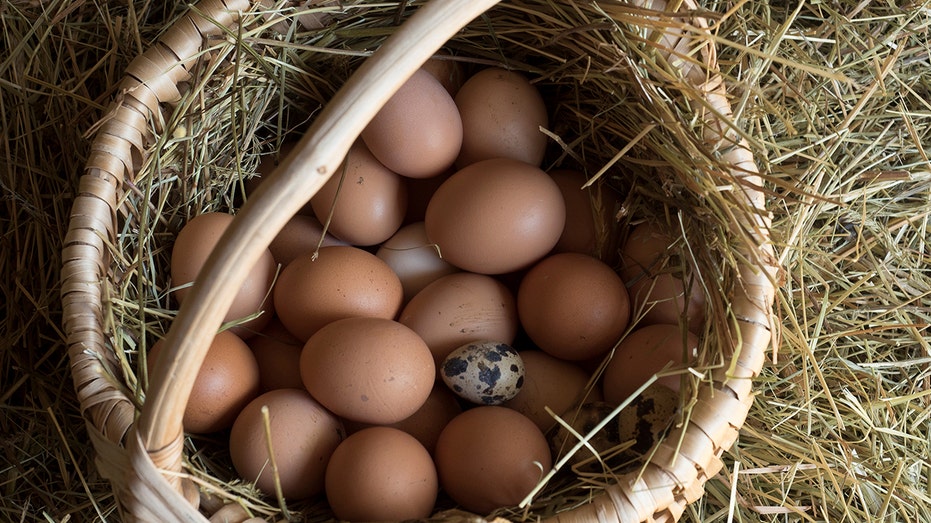Renting chickens is on the rise to avoid soaring egg prices
Jeff Flock explores a growing trend with Phil Tompkins of Rent The Chicken on 'Varney & Co.'
Having chickens is a great way to supply fresh eggs to your family, but what should you do if you have a surplus?
For most who raise chickens in their backyard, the intent is to have enough to feed their family and maybe provide friends and family with extra.
An alternative is to sell the eggs and turn a profit right from your yard.
However, to have enough eggs to sell, you're going to need a lot of chickens, which translates to a large amount of yard space. On average, each chicken in your possession will need about three to five square feet inside a coop, according to Freedom Ranger Hatchery.
HOW TO RAISE CHICKENS IN YOUR BACKYARD

If you have more eggs than you need from your chickens, you can sell them for a little extra cash. (Brandon Bell/Getty Images / Getty Images)
This may not read like a lot of space, but this doesn't include the outdoor space they require to roam freely. You'll want to designate around 8-10 square feet per chicken of outdoor space, according to the source.
If you have enough chickens who are regularly producing more eggs than you need yourself, there are a few ways to sell and profit from the product. First, you must check your local laws and regulations for selling eggs. For example, you may need a license to sell animal products.
Below are four different ways you can make money off your surplus of eggs this summer.
- Roadside farmer's stand
- Sell at a farmers market
- Sell to local grocery stores or restaurants
- Sell directly to loyal customers
1. Roadside farmer's stand
One common way fresh eggs are sold is through a roadside farmer's stand. Many set these up right on their property and sell to those passing by.
WANT TO MAKE MONEY OFF YOUR FLOURISHING GARDEN? HERE ARE 4 WAYS TO TURN YOUR CROPS INTO CASH
When you are designing your stand, keep it simple with a tablecloth that draws attention.
Alternatively, take a DIY approach and build a farm stand. Be sure to use eye-catching colors and be forthright with information, like the cost of eggs. A dull egg stand is not going to garner a lot of attention.

Bringing eggs to a local farmers market to sell is a great way to find new customers and spread the word about your business. (Luke Sharrett/Bloomberg via Getty Images / Getty Images)
If you consistently sell your eggs on a specific day, you may start to see returning visitors.
Again, whether you are selling on your property or at another location, be sure to check local regulations.
2. Sell at a farmers market
In addition to a stand out front, local farmers market are an ideal location to sell products. Typically, there is a fee for vendors at market events.
IS THERE A CHICKEN COOP IN YOUR FUTURE AS EGG COSTS RISE? KNOW THE HEALTH RISKS FIRST
When pricing your item, look at local grocery prices and the competition to ensure you are valuing your items at a competitive but fair price.
To stand out among other egg sellers, design a unique logo for the product. Include your contact information and all nutritional facts. Again, check local regulations to make sure you include all necessary information on your packaging.
3. Sell to local grocery stores or restaurants
If you don't want to sell directly to consumers, reach out to local grocery stores or restaurants who are looking for local products.
Make a list of local businesses to reach out to. Start contacting each one, provide information about your chickens and the eggs and offer a sample.

If you don't want to sell your eggs directly to consumers, check with local restaurants and grocery stores who may be interested in buying from you. (Marco Simonini/Reda&Co/Universal Images Group via Getty Images / Getty Images)
With this method, a "no" should be expected here and there, but don't be discouraged. If you don't get a "yes" right away, keep trying.
4. Sell directly to loyal customers
Selling directly to loyal customers is an ideal method for those who have a small surplus of eggs. If you have a handful of extra eggs consistently, start selling directly, beginning with people you know who are looking to buy fresh eggs.
GET Gxstocks ON THE GO BY CLICKING HERE
If you offer a quality product, you'll likely develop a loyal customer base who buy their eggs solely from you. This may provide you with a small but reliable source of income.
Keep in mind that word of mouth is a powerful tool and, without much notice, you may have quite a few customers on your hands. If you have limited yard space or simply don't want more chickens than you have, avoid getting too deep into the selling process and keep your circle intimate.
Selling a surplus of eggs can score you a little extra money while ensuring that your excess product is not going to waste.




